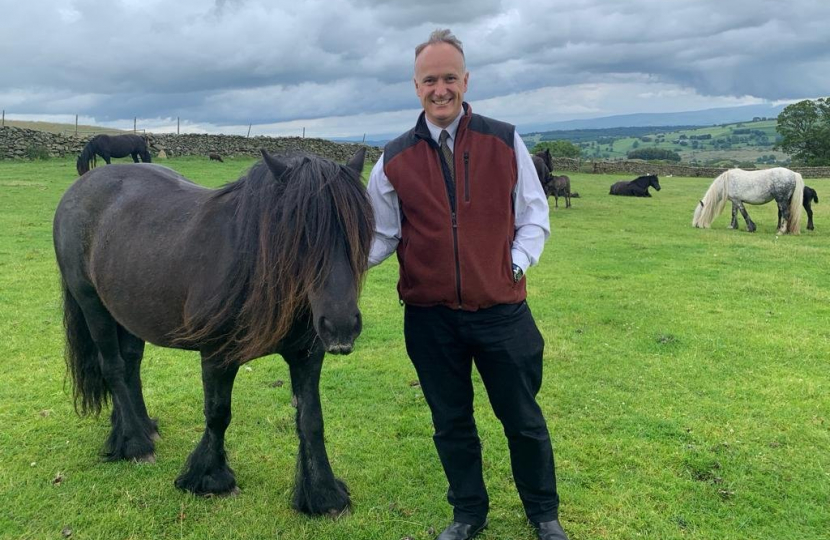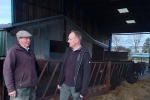
Dr Neil Hudson MP welcomed that the ‘Penrith2Kendal Arc Landscape Recovery’, ‘Resilient Glenderamackin’ and ‘Upper Irthing PRISM - Peatland, Rivers, Invasives, rare Species & Meadows’ projects in Penrith and The Border have been awarded funding through the second round of the £25 million Landscape Recovery scheme.
Landscape Recovery is one of the Conservative Government's three Environmental Land Management schemes (ELMs) available to farmers in England as the nation continues its transition away from direct payments to a new funding style. The scheme funds long-term, large-scale, bespoke projects designed to enhance the natural environment and deliver significant environmental benefits alongside the sustainable production of food. The focus of this round is net zero, protected sites, and wildlife-rich habitats.
Dr Neil Hudson MP said:
“Ours is such a nature-rich part of the world and constantly inspires me to keep pushing hard for our Conservative's positive environmental agenda - and for the hardworking British farmers that look after our beloved landscapes.”
"Having almost 30,000 hectares of Cumbria benefit from the Landscape Recovery Scheme will be an incredible boon for both the environment and the rural economy that supports it. From carbon capture and water quality improvement to restoring habitats and saving peatland the benefits of these schemes are many."
Nationally, 34 projects have been successful in the second round of the government’s Landscape Recovery scheme. These successful initiatives demonstrated pioneering ideas that will reverse the decline in nature and support the sustainable production of food. Locally, these include:
- The Penrith2Kendal Arc project covers 14,000 hectares in the eastern Lake District and aims to improve the upland landscape and tributaries of the River Eden and River Kent by creating a mosaic of wildlife rich habitats that will increase species variety and capture carbon from the atmosphere. The project is also looking to improve water quality and water management to create a more resilient landscape which benefits both nature and the local community.
- The 6000-hectare PRISM project focuses on the upper catchment of the River Irthing and seeks to enhance, restore and connect hydrologically linked, wildlife-rich and priority habitats with their associated species. New models of sustainable land management will be embraced with the restoration and enhancement of watercourses, riparian corridor habitats and species. Peatlands also aim to be restored including large scale restoration of blanket and constrained mire habitats, strategic conservation of associated specialist species, and enhancements of transition and buffer zones between peatland and adjacent land.
- The 9600-hectare Glenderamackin project will create and restore habitats including ponds and wetlands, restore rivers, reconnect floodplains, create woodland, scrub and hedgerows and improve soil health, significantly contributing to nature recovery and net zero targets in the Lake District National Park (LDNP) through habitat resilience and carbon storage.
The second round of the scheme will build on the success of the first round by supporting even more projects across the country to instigate large-scale, long-term positive environmental change. The first 22 Landscape Recovery projects are already underway and will restore over 600 km of rivers and protect and targeting the conservation of more than 260 flagship species.
Together these projects will support over 200,000 hectares of nature and sustainable food production, working hand in hand with local farmers and communities. They will restore more than 35,000 hectares of peatland, sustainably manage more than 20,000 hectares of woodland, including some temperate rainforest, with over 7,000 hectares of woodland creation, benefit more than 160 protected sites (SSSIs) and involve at least 700 land managers.




